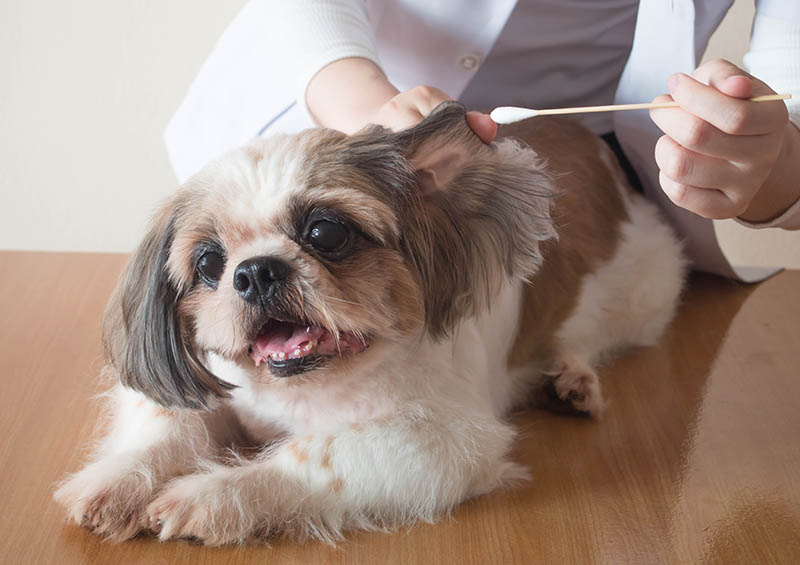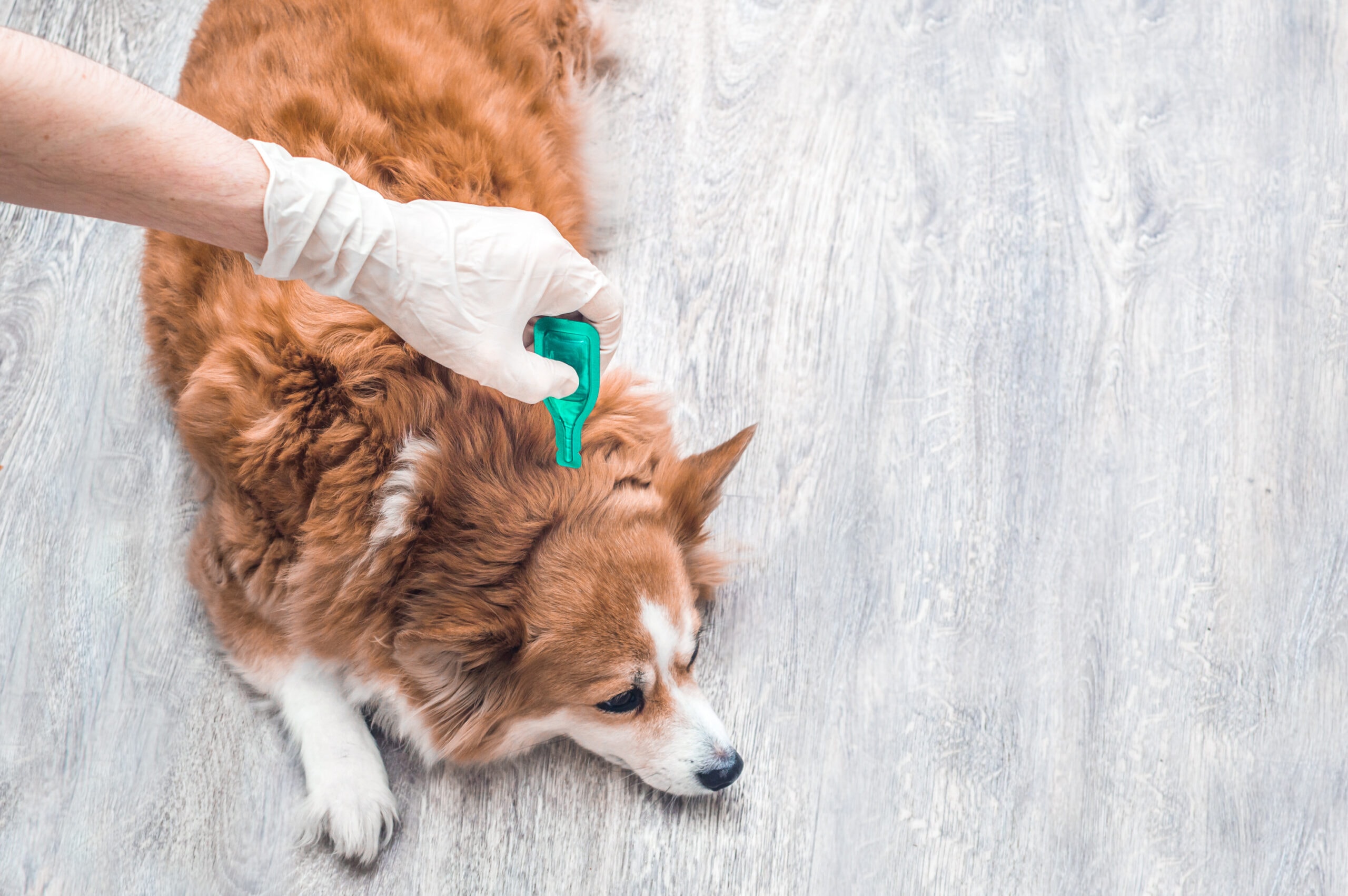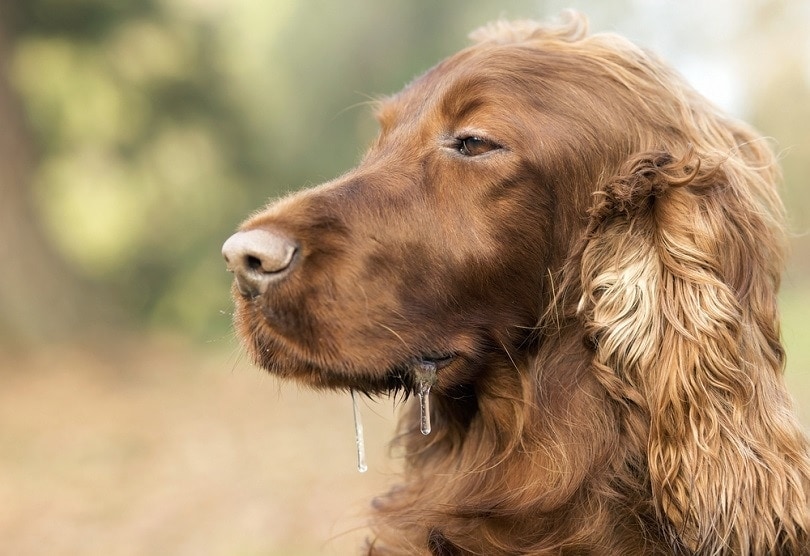13 Common Shih Tzu Health Issues to Watch Out For!
Updated on

Shih Tzus have one of the longest lifespans of all dog breeds, living up to 18 years old. Though they are generally considered healthy, they are prone to several medical conditions, potentially because they are purebred. If you’re considering adopting a Shih Tzu or already have one, you must familiarize yourself with these health issues to know what signs to look for in your pup.
Keep reading to find the 13 most common health conditions afflicting Shih Tzus so you can take the best care of your pup.
The 13 Common Shih Tzu Health Issues
1. Dental Issues
Dental disease is widespread in pets, but certain dental conditions are more likely to occur in Shih Tzus. Periodontal or gum disease is seen in as many as 90% of dogs by the time they reach two years of age, so while Shih Tzus may be more at risk of this condition, it’s prevalent in all breeds.
The Shih Tzus small mouth can cause their teeth to overcrowd, leading to tartar and plaque development. Therefore, maintaining oral health through brushing and dental cleanings is essential for your pup.

2. Luxating Patella
Patellar luxation is a condition that occurs when the kneecap moves out of its normal position in the thigh bone groove. This is an inherited condition in small and toy dog breeds or can occur due to an injury. Patellar luxation results in discomfort, limping, and, if not treated, arthritis.
If your pup develops this condition, you may notice them suddenly picking up a back leg and skipping or hopping for a few strides. It will kick its leg out sideways to pop the kneecap back into place, and it will be good to run around again. If the problem is mild and only affects one leg, your Shih Tzu may not need medical intervention aside from arthritis medication. However, surgery may be necessary to realign the kneecap if the symptoms become severe.
3. Heart Failure Due to Valve Defect
A dog’s heart has four valves, but the most problematic is the mitral valve. The heart pushes blood into the lungs and elsewhere throughout the body, and a leak in this valve can cause a major malfunction in the circulatory system. The leak causes the heart to work harder, the lungs may fill with fluid, and the blood circulating throughout your dog’s body is not oxygenated enough.
The most common cause of mitral valve insufficiency is congenital and smaller dogs, like the Shih Tzu, are most susceptible to it. This condition will eventually lead to heart failure unless it’s caught early, but it is progressive, so it will get worse as time goes on.
Signs of this condition include coughing during exercise, panting more than usual, loss of appetite, weakness, and weight loss.

4. Eye Conditions
The Shih Tzu’s eyes are large and sensitive, which puts the breed at risk for several eye-related conditions and diseases. Genetics can also play a part in the development of certain conditions.
Progressive retinal atrophy is a group of progressive eye diseases that affects the cells in the retina. Photoreceptor cells will deteriorate over time and will eventually lead to blindness.
Glaucoma is an eye disease often seen in Shih Tzus. It is caused by increased eye pressure and results from an imbalance in how your dog’s eye produces and drains fluid. Signs of glaucoma include dilated pupils nonresponse to direct light, redness in the eye whites, rubbing at the eye, eye swelling, and an increase in watery discharge.
Keratoconjunctivitis sicca (KCS) involves a decrease in tear production. Tears are essential for lubricating the eye; their antibacterial proteins and white blood cells can fight infection. Signs of dry eye in dogs include red or inflamed eyes, frequent squinting, redness or swelling of the tissues around the eye, and a mucus-like discharge on the cornea.
Eyelid entropion is when the eyelid rolls inward, causing the hairs on the eyelid surface to rub against the cornea. This will result in pain, perforations, or corneal ulcers. Dogs with this condition can also develop an abnormal pigment on the cornea, which will interfere with their vision. If your Shih Tzu has eyelid entropion, it’ll squint, hold its eye shut, or tear excessively.
Even your Shih Tzu’s eyelashes can cause problems. Ectopic cilia is a condition that occurs when one or more eyelashes grow abnormally through the conjunctiva and come into contact with the cornea. This causes pain and corneal ulcers. Distichiasis is another eyelash condition that occurs when an extra eyelash arises from the eyelid’s margin through the duct or an opening in the meibomian gland. There is usually more than one offending eyelash, and sometimes more than one will arise from each duct. The clinical signs of this condition will vary depending on the severity, but most often, you’ll notice eye inflammation and irritation, discharge, and pain.
See also: How to Clean Shih Tzu Eyes (5 Simple Tips)
5. Obesity
Any dog, regardless of breed, is at risk of obesity. But since Shih Tzus aren’t necessarily the best athletes, they easily become overweight. As an owner, you must ensure your pet gets the recommended daily exercise and limited treats. Obesity in dogs can cause other severe conditions like diabetes, arthritis, and heart disease. Since Shih Tzus are a brachycephalic breed predisposed to respiratory issues, obesity can make breathing even more challenging for your pup.

6. Portosystemic Shunt
Portosystemic shunt (PSS) is a liver disease that causes the toxins in the bloodstream to bypass the liver. The liver typically filters these toxins out of the body, so when they’re being bypassed, they can build up and cause gastrointestinal issues. Signs of PSS include stunted growth, weight loss, vomiting, diarrhea, unresponsiveness, seizures, and temporary blindness. Your dog will need a blood test to diagnose the condition and potentially surgery to repair it.
Some dogs are born with the shunt (congenital), or it can develop later in life. Unfortunately, Shih Tzus are one of the breeds that can develop this condition congenitally.
7. Hip Dysplasia
Hip dysplasia is another inherited disease that can cause your dog’s hip joints to form improperly. While this condition is known to affect large and extra-large dog breeds more often, it is still commonly seen in the Shih Tzu.
Hip dysplasia occurs when the ball or socket grows too fast or too slow compared to its counterpart. When they do not grow at the same speed, they won’t fit inside each other as they should. This causes the joints to wear on each other, leading to arthritis.
Signs of hip dysplasia in dogs include decreased activity levels, reduced range of motion, hind-end lameness, loss of thigh muscle mass, pain, or stiffness.

8. Cushing’s Disease
Cushing’s disease (or hyperadrenocorticism) occurs when the adrenal glands malfunction and produce too much cortisol. Excess cortisol can put your pup at risk of several other serious conditions like kidney damage and diabetes. The condition tends to develop slowly, so it’s easy to miss the early warning signs. Signs to be on the lookout for include increased appetite, excessive thirst, hair loss, frequent urination, thinning skin, and muscle weakness.
9. Allergies
When humans have allergies to pollen, mold, or dust, they sneeze, and their eyes get itchy. In dogs, however, instead of sneezing, their skin will become excessively itchy. This skin allergy is known as “atopy,” and it’s common in Shih Tzus. The areas of the body most commonly affected are the belly, feet, skin folds, and ears. Symptoms will usually begin around the ages of one and three and can get worse each year.

10. Tracheal Collapse
The trachea, also known as the windpipe, is a flexible tube that connects the throat to the lungs. The tube is lined with small C-shaped cartilage rings that keep the trachea open, so air can get in and out of the lungs. Tracheal collapse is a progressive respiratory condition that occurs when these rings collapse. It can cause your Shih Tzu breathing problems and may result in signs like difficulty breathing, coughing, vomiting, gagging, wheezing, and even cyanotic episodes (turning blue).
In addition, your dog may experience moments of respiratory distress which can be violent and frightening. Obesity and hot weather can also trigger signs of tracheal collapse.
11. Struvite Bladder Stones
Bladder stones are rock-like mineral formations that occur in the urinary bladder. One of the most common formations is known as a struvite bladder stone. These stones usually form as a complication of a bladder infection caused by a urease-producing bacteria. These stones cause signs like blood in the urine and straining to urinate. Your vet may want to remove the stones surgically or, more preferably, dissolve them by diet.

12. Glomerulonephropathy
Glomerulonephropathy is a kidney disease that’s often inherited in Shih Tzus. This condition causes your pup to lose excess protein and may lead to early kidney malfunction. The clinical signs to look for include lack of appetite, diarrhea, increased thirst, muscle wasting, and weight loss. Your vet can help treat this condition with dietary changes, medication, and fluid therapy.
13. Brachycephalic Syndrome
Any dog or cat breed with a flat face has the brachycephalic syndrome. Animals with this condition have airway abnormalities such as a collapsing trachea, small nostrils, and a soft palate. These physical traits can cause your Shih Tzu to have difficulty breathing and may make it prone to overheating. If the condition is severe enough, your vet may recommend surgery to help correct some of the issues.

Final Thoughts
Don’t let the number of health conditions Shih Tzus may be prone to scare you. This breed is generally very healthy, and with a lifespan as long as it has, you can expect many happy and healthy years together. Now that you know what your pup is predisposed to because of its breed, you can watch for any concerning behaviors or signs to nip any health issues in the bud.
Featured Image Credit: Radosław Zmudziński, Pixabay











